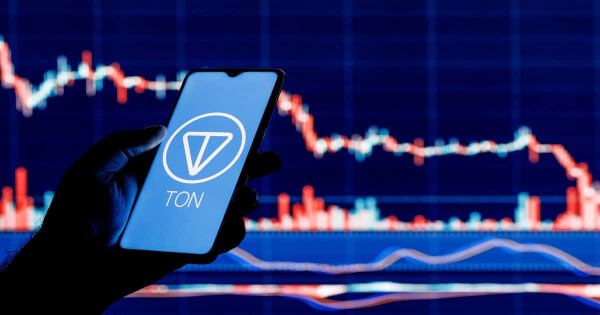Key Takeaways:
- Nigeria aims to tax crypto transactions to bolster national revenue.
- The SEC is expanding crypto licensing to monitor and tax exchanges effectively.
- This move comes amidst ongoing regulatory clashes, including disputes with Binance.
Nigeria, incorporating its strong focus on virtual currencies, is getting itself in a good position to make cryptocurrencies a part of its regulated financial system. The Securities and Exchange Commission (SEC) is the entity leading the reform effort by making amendments to its original digital asset regulations. This particular project will be all about the practicality of cryptocurrency taxation that the government believes is set to produce “substantial funds.” This is an extremely well-founded move given Nigeria’s urgent need to create alternative revenue sources, strengthen its economic resilience, and secure a leading place in the rapidly-developing world digital economy.
First Steps with the Bill: Development of the Legal Framework for Crypto Taxation
This initiative is founded on an impeccable bill developed to execute a tax framework that is structured for cryptocurrency transactions as well as taxation of the broader digital asset spectrum. The bill is expected to be approved this quarter after thorough scrutiny by Nigerian lawmakers. This bill is seen as the most important aspect for this new legislative session by the National Assembly, which was reopened on January 14, 2025 and it acknowledges this bill’s contribution, realizing that it would have a potential impact on the nation’s financial future. The specifics that will be addressed in the bill are likely to inform foundational elements of the crypto taxation such as:
- Point of Taxation: Describing the specific crypto transactions (trading, mining, staking, etc.) that would be subject to taxation.
- Tax Rates: Determining the tax rates that are appropriate for various kinds of virtual currency transactions.
- Compliance Procedures: A depiction of the payment and reporting duties concerning taxation on cryptocurrencies.
For both corporate organizations and individuals operating in the area of cryptocurrency in Nigeria, the necessary clarity that is mentioned in the bill is the most important thing.
Expanding Licensing to Enhance Security and Investor Trust
The SEC’s initiative aims to enhance security and transparency in Nigeria’s crypto ecosystem, beyond just generating revenue. The agency is currently in the process of licensing crypto companies to increase security in the space. By licensing exchanges, the SEC aims to standardize the industry, regulate transactions, and improve tax collection. The SEC commented that they “anticipate gradual traction toward centralized exchanges because they will offer greater protections and comfort for investors,” showing they rather urge the compliant platforms. This administrative approach is also inclined toward safety and verification methods that will enhance liquidity and the adoption of cryptocurrencies in Nigeria’s economy.
Case Study: The Impact of Provisional Licensing on Busha and Quidax
The issuance of the provisional license to the Virtual Asset Service Providers (VASPs) is a classic example of the SEC’s dedication to the regulation of the electronic money sphere. Among others, these licenses depict the SEC’s willingness to cooperate with cryptocurrency businesses that are committed to adherence to the law. Consequently, this can be viewed as one of the setbacks VASPs are facing as they try to sail through the maze of complex and dynamic laws in a bid to adhere to the rules of the SEC.
Early Adoption: KuCoin’s VAT Implementation Demonstrates Feasibility
KuCoin’s early adoption of VAT in Nigeria demonstrates the feasibility of crypto taxation. By being quick to start collecting the 7.5% value-added tax on the trading fees from the Nigerian users, KuCoin was able to prove that exchanges can actually adapt to the changing regulations and take a part in the national tax revenue collection. It also acts as a model for others to follow, thus it allows for the unrefined understanding of crypto taxation the industry now has to be made more refined.
Nigeria’s Crypto Culture: A Response to Economic Realities
The discovery by local investors of an alternative form of an asset that was immune to local governance and exchange rate risks associated with rapid currency depreciation, with a double-digit inflation rate, was a unique experience. Respondents of the Consensys’ 2024 Perception Survey in Nigeria who say they possess a digital wallet consists of an overwhelming 84% that affirm the cryptographic currency and its wallet as the primary means of becoming more digitized. According to Chainalysis’ 2024 Geography of Cryptocurrency Report, Nigeria placed the second that boosted the DeFi umbrella showing Nigeria as among the leading openly susceptible to cryptocurrencies at 40%.

The Global Crypto Adoption Index (2024). Source: Chainalysis
This intense interest in DeFi originates from the need to use banking services which are not easily available through the normal banking process. A lot of Nigerians are of the opinion that cryptocurrency is in fact an alternative that will in one way or the other sidestep the long process of the grant of permission, reduce the cost of the process of the transaction and hence lead to individuals being able to have more control over their financial assets.
Navigating Regulatory Complexities and the Shadow of the Binance Dispute
The road to the tax of cryptocurrency may have a variety of challenges. Nigeria is facing a regulatory system that is hard to work with and it is also very dynamic making it difficult for crypto businesses. We can see in the disagreement between the Nigerian authorities and Binance the problem of trying to regulate a global, decentralized industry within the borders of a single nation.
The crux of conflict lay in allegations of rigid non-compliance, currency manipulation, and the evasion of taxes. Nigerian authorities have indicated Binance for its purported illegal operation and its role in Naira’s devaluation. The detention of Binance executives and the ensuing legal proceedings have raised a question of whether the exchange will continue operations in Nigeria, thus, creating uncertainty. These concerns demonstrate the interplay between regulatory compliance and the creation of a thriving ecosystem in the Nigerian crypto industry that can bring in global investments and innovation. The allegations issued by Binance executives, and the rebuttals of the Nigerian government worsen the situation leading to distrust and ambiguity.
Lessons from Abroad: A Comparative Analysis with South Africa and Other Nations
To have a complete and clear understanding, it is very advantageous to juxtapose Nigeria’s approach to the case of other countries, both within Africa and other countries globally. While analyzing different countries’ approaches to regulation, Nigeria might borrow some valuable practices that would enable the formation of a well-functioning and regulated crypto economy.
Thus, the country adopts and implements more coherent and democratic habits of regulation in the digital world, for example. The Financial Sector Conduct Authority (FSCA) recognizes Crypto Asset Service Providers (CASPs) as financial institutions, therefore, this is a more explicit regulatory framework. This entails stringent procedures with well-defined requirements and processes. Here the authorities aim to guarantee consumer awareness and defend the business expansion.
On the contrary, Singapore has taken the path of liberalization and has been involved in various fields as a crypto innovation center. Along with that, it has adopted AML and KYC rules which are very strict to the extent of not even allowing illicit activities.
More News: Tether and Guinea Team Up to Explore Blockchain Technology and Drive Digital Transformation
Balancing Innovation, Regulation, and Investor Protection: A Delicate Act
The SEC’s new regulations on crypto marketing aim to protect investors from fraudulent schemes. The SEC wants to stop unsanctioned and injurious crypto products. Thus, it requires the providers of virtual assets to enter into an agreement with third parties authorized by the SEC.
On the one hand, it designs the implementation of the digital currency tax plan in Nigeria. On the other side, the country needs to ensure the effective functioning of this tax, being protective of investors. Proverbially, excessive and independent regulation and auditing prices can inadvertently force crypto users underground and in fact, this would be even worse for those governmental objectives purported to be achieved. A cooperative and open talk with industry stakeholders is the main factor contributing to the policy’s success and hence, a key to creating a regulatory environment that is both innovative and safe for customers’ transactions. Nigeria has this one and only possibility to establish itself as a world leader in the substantive adoption of digital assets, showcasing the example of the economy of other developing nations in viewing the world. The genesis of this project is the governments and regulators’ capability to implement a regulatory environment that is ideal for both innovation and safeguarding the investors’ rights.
The post Nigeria’s Cryptocurrency Taxation Plan: Unpacking the Implications and Challenges appeared first on CryptoNinjas.

You can get bonuses upto $100 FREE BONUS when you:
💰 Install these recommended apps:
💲 SocialGood - 100% Crypto Back on Everyday Shopping
💲 xPortal - The DeFi For The Next Billion
💲 CryptoTab Browser - Lightweight, fast, and ready to mine!
💰 Register on these recommended exchanges:
🟡 Binance🟡 Bitfinex🟡 Bitmart🟡 Bittrex🟡 Bitget
🟡 CoinEx🟡 Crypto.com🟡 Gate.io🟡 Huobi🟡 Kucoin.














Comments